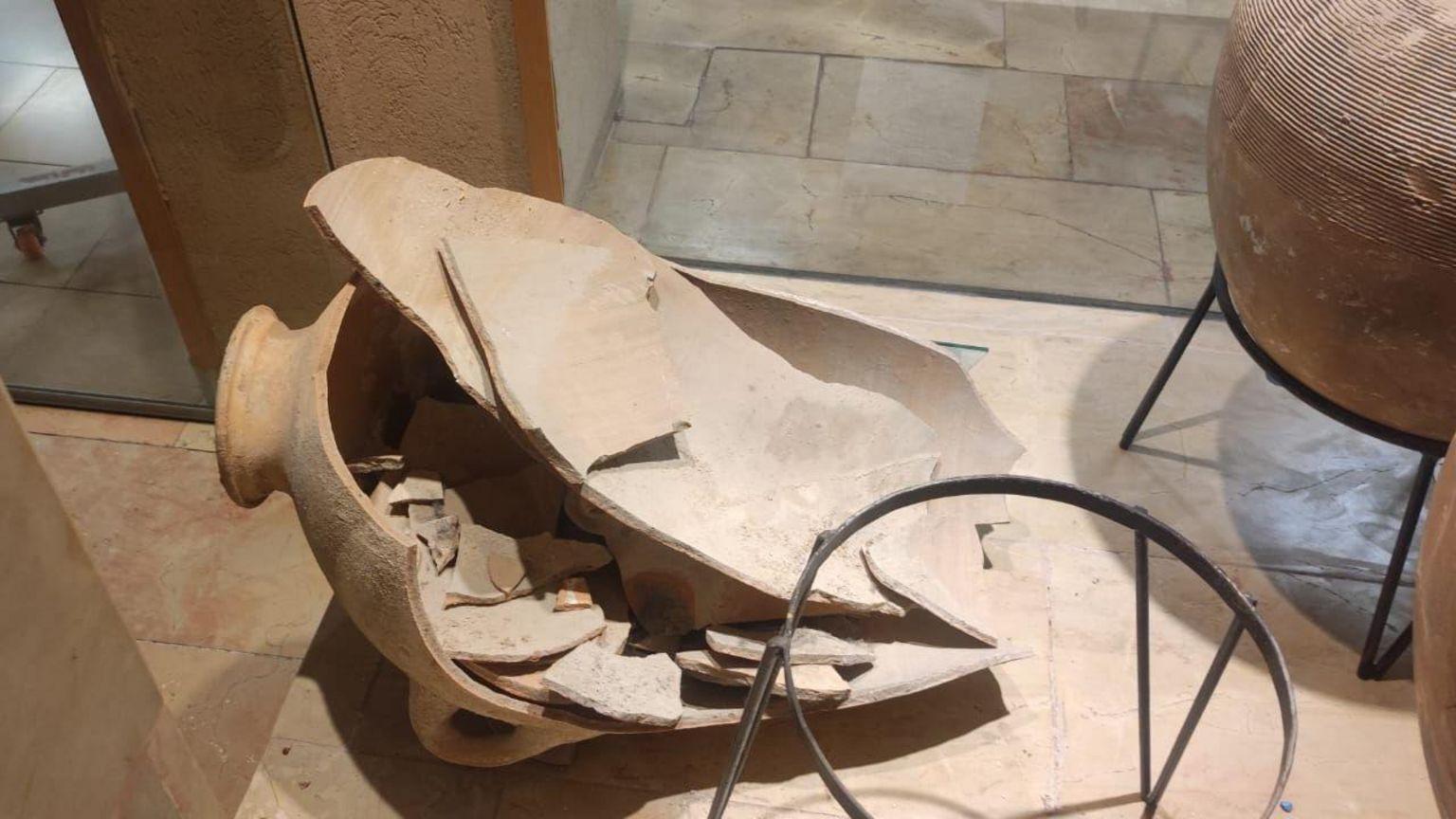
By BBC News World
28 Aug 2024, 02:12 AM EDT
A child accidentally broke a 3,500-year-old pot during a visit to a museum in Israel. The Hecht Museum in Haifa, a city in the north of the country, told the BBC that the object dates back to the Bronze Age, between 2200 and 1500 BC, and was a rare artefact because it was intact.
The vase was on display near the museum entrance, without protective glass. The institution believes that displaying archaeological finds “without obstructions” has a “special charm.”
According to the center’s administrators, what happened was an accident and the boy, who is between four and five years old, was invited along with his family to return to the exhibition for an organized visit.
“There are cases where exhibits are intentionally damaged, and such cases are dealt with very severely, even involving the police,” the museum’s Lihi Laszlo told the BBC.
“In this case, however, that was not the case. The bottle was accidentally damaged by a small child visiting the museum, and the response will be appropriate,” he added.
The restoration
The museum has appointed a conservation specialist to restore the jar and it will be returned to its original location “shortly.”
Hecht also noted that “wherever possible, items are displayed without barriers or glass walls.”

And “despite the strange incident,” he said he intends to continue this tradition.
According to experts, the amphora was most likely used in ancient times to transport supplies such as wine and olive oil.
It predates the time of the biblical King David and King Solomon and is characteristic of the Canaan region on the eastern coast of the Mediterranean.
Similar pottery items found during archaeological excavations are often broken or incomplete when unearthed, making this intact jar “an impressive find,” the museum added.
The Hecht is on the grounds of the University of Haifa in Israel and collects items of archaeology and art.

Click here to read more stories from BBC News Mundo.
You can also follow us on YouTube, Instagram, TikTok, X, Facebook and in our new WhatsApp channelwhere you’ll find breaking news and our best content.
And remember that you can receive notifications in our app. Download the latest version and activate them.
- “Lutetia”: what was the pre-Roman village that later became Paris like?
- Images of the bodies of a couple in Pompeii, victims of Vesuvius, next to a “small treasure”
- Tina, the 6-year-old Neanderthal girl with Down syndrome who shows that compassion and care helped us evolve as a species
